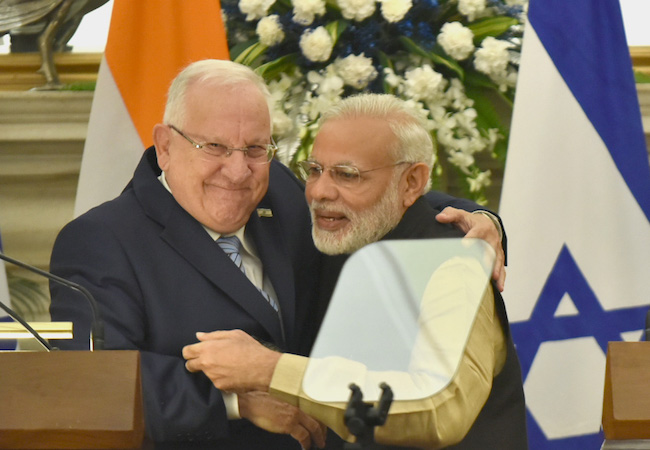Can India be a key player in the Middle Eastern dilemma?

By Samarth Kavoori and Megha Gupta
The month of October 2018, proved to be a turbulent one globally. Beginning with the deepening of the bilateral sanctions on Iran imposed by the U.S., the murder of the Saudi journalist and the U.S. resident Jamal Kashoggi, the speculations for the mid-term U.S. elections, etc. Due to these events, India has had its own set of problems, which can be tackled through strategic diplomacy. The Iran sanctions were initially thought of us a burden to India, though with certain events that followed, this burden could become a success story for India’s diplomatic success.
This could be attributed to two events that took place last month: the murder of Jamal Kashoggi in the Saudi Arab consulate in Istanbul and India might be one of the eight states likely to receive a waiver with the advent of the Iran sanctions imposed by Donald Trump.
India faces a dilemma when its relations with Iran are questioned, from India’s perspective, Iran is a neutral actor in the South Asian region and an important mediator between India and Pakistan. Iran is also the key to control China’s expansion in Central Asia. The Chabahar port, in Southern Iran, was expanded as an answer to China’s development of Gwadar in Pakistan. The Indian and Afghani administrations have also appreciated the importance of Chabahar. India is the primary supplier of humanitarian support to rebuild the war-torn Afghan economy and a trade route through the Afghanistan’s outer ring road to the Central Asian economies helps in bypassing Pakistan. This in turn is also a strategy to contain the expansion of China. This makes India an important actor, as it’s in a position to negotiate with all the major powers involved. India and U.S. together share an interest in containing China which aspires to be a hegemon.
Further, from the perspective of India’s national security, Iran and India control terrorism initiated by Sunni extremists in Pakistan and ensure a stable government in Afghanistan. A strong relationship between Iran and India also ensures a stable bond with Russia who is officially an ally of Iran at present. This also sums up how India balances its relations with Iran and the United States.
Iran needs to sell its oil to India, and the United States needs to contain China. The U.S. cannot depend completely on Pakistani assistance since Pakistan views China as a regional ally. With India’s political and economically stable condition, the present situation is a win-win for India.
The second problem, is the crisis in the Middle East that can be separated from the dynamics in South Asia. The widely reported Iran-Saudi Arabia cold war now involves a third actor, Turkey, who challenge the two economically as well as a military power.
The murder of Kashoggi, has yet again proven that an alliance of any regional power (including India) with the Saudi Arabia will prove unstable and also defy logic of humanitarian law. In Iran’s case human rights violations is not a major issue that one needs to worry about. India’s role could be more important in this deal than it realizes: It can act as a negotiator between Iran and the United States.
In fact, one should also consider India’s stable relations with Iran and Israel, another regional belligerent of Iran. India is one of the only major powers that maintains good strategic relations with both Iran and Israel. India is clearly showing signs of a power that is capable of ensuring peace in Asia and Middle East barring its major conflict with Pakistan.
One must consider another factor that is of key importance owing to independent India’s history. India has never been involved in an external conflict thus no regional powers in the Middle East will hold a bias towards India’s diplomatic position. All parties have confirmed that India has always followed International decorum and supports the stability of all regimes in the region. This gives India the leverage of negotiating with all major powers in the region and not involve itself in the political turmoil the region faces. In other words, India can act as an advisor to what states should do rather than involving itself in the way, a state functions. In conclusion, India must remember that Iranian oil isn’t the only important factor involved here, Iran’s strategic position ensures that India maintains its regional integrity and the effects of the sanctions will only last for a short time over a long run win-win scenario.
Megha Gupta and Samarth Kavoori are scholars of Masters in Diplomacy, Law, Business at Jindal School of International Affairs, India.




